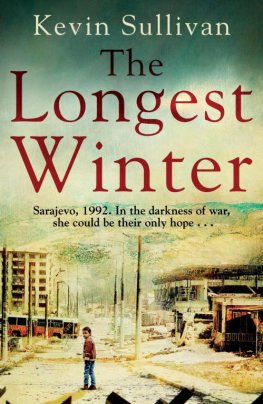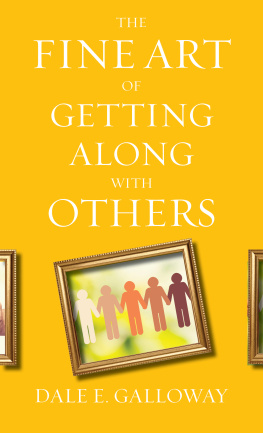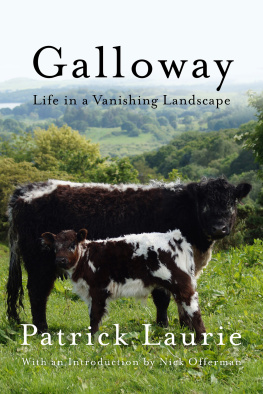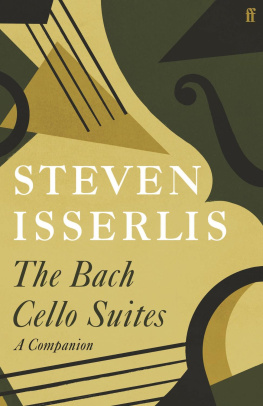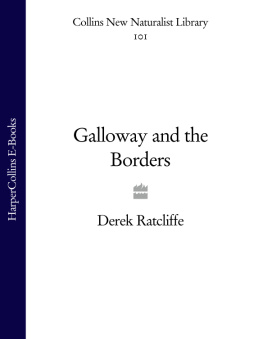Steven Galloway - The Cellist of Sarajevo
Here you can read online Steven Galloway - The Cellist of Sarajevo full text of the book (entire story) in english for free. Download pdf and epub, get meaning, cover and reviews about this ebook. year: 2008, publisher: Knopf, genre: Detective and thriller. Description of the work, (preface) as well as reviews are available. Best literature library LitArk.com created for fans of good reading and offers a wide selection of genres:
Romance novel
Science fiction
Adventure
Detective
Science
History
Home and family
Prose
Art
Politics
Computer
Non-fiction
Religion
Business
Children
Humor
Choose a favorite category and find really read worthwhile books. Enjoy immersion in the world of imagination, feel the emotions of the characters or learn something new for yourself, make an fascinating discovery.

- Book:The Cellist of Sarajevo
- Author:
- Publisher:Knopf
- Genre:
- Year:2008
- Rating:5 / 5
- Favourites:Add to favourites
- Your mark:
- 100
- 1
- 2
- 3
- 4
- 5
The Cellist of Sarajevo: summary, description and annotation
We offer to read an annotation, description, summary or preface (depends on what the author of the book "The Cellist of Sarajevo" wrote himself). If you haven't found the necessary information about the book — write in the comments, we will try to find it.
The Cellist of Sarajevo — read online for free the complete book (whole text) full work
Below is the text of the book, divided by pages. System saving the place of the last page read, allows you to conveniently read the book "The Cellist of Sarajevo" online for free, without having to search again every time where you left off. Put a bookmark, and you can go to the page where you finished reading at any time.
Font size:
Interval:
Bookmark:
Contents
FOR LARA
You may not be interested in war,
but war is interested in you.
LEON TROTSKY
The Sarajevo in this novel is only one small part of the
real city and its people, as imagined by the author.
This is above all else a work of fiction.
The Cellist
I T SCREAMED DOWNWARD, SPLITTING AIR AND SKY without effort. A target expanded in size, brought into focus by time and velocity. There was a moment before impact that was the last instant of things as they were. Then the visible world exploded.
In 1945, an Italian musicologist found four bars of a sonatas bass line in the remnants of the firebombed Dresden Music Library. He believed these notes were the work of the seventeenth-century Venetian composer Tomaso Albinoni, and spent the next twelve years reconstructing a larger piece from the charred manuscript fragment. The resulting composition, known as Albinonis Adagio, bears little resemblance to most of Albinonis work and is considered fraudulent by most scholars. But even those who doubt its authenticity have difficulty denying the Adagios beauty.
Nearly half a century later, its this contradiction that appeals to the cellist. That something could be almost erased from existence in the landscape of a ruined city, and then rebuilt until it is new and worthwhile, gives him hope. A hope that, now, is one of a limited number of things remaining for the besieged citizens of Sarajevo and that, for many, dwindles each day.
And so today, like every other day in recent memory, the cellist sits beside the window of his second-floor apartment and plays until he feels his hope return. He rarely plays the Adagio. Most days hes able to feel the music rejuvenate him as simply as if he were filling a car with gasoline. But some days this isnt the case. If, after several hours, this hope doesnt return, he will pause to gather himself, and then he and his cello will coax Albinonis Adagio out of the firebombed husk of Dresden and into the mortar-pocked, sniper-infested streets of Sarajevo. By the time the last few notes fade, his hope will be restored, but each time hes forced to resort to the Adagio it becomes harder, and he knows its effect is finite. There are only a certain number of Adagios left in him, and he will not recklessly spend this precious currency.
It wasnt always like this. Not long ago the promise of a happy life seemed almost inviolable. Five years ago at his sisters wedding, hed posed for a family photograph, his fathers arm slung behind his neck, fingers grasping his shoulder. It was a firm grip, and to some it would have been painful, but to the cellist it was the opposite. The fingers on his flesh told him that he was loved, that he had always been loved, and that the world was a place where above all else the things that were good would find a way to burrow into you. Though he knew all of this then, he would give up nearly anything to be able to go back in time and slow down that moment, if only so he could more clearly recall it now. He would very much like to feel his fathers hand on his shoulder again.
He can tell today wont be an Adagio day. It has been only a half-hour since he sat down beside the window, but already he feels a little bit better. Outside, a line of people wait to buy bread. Its been over a week since the markets had any bread to buy, and he considers whether he might join them. Many of his friends and neighbours are in line. He decides against it, for now. Theres still work to do.
It screamed downward, splitting air and sky without effort. A target expanded in size, brought into focus by time and velocity. There was a moment before impact that was the last instant of things as they were. Then the visible world exploded.
When the mortars destroyed the Sarajevo Opera Hall, the cellist felt as if he were inside the building, as if the bricks and glass that once bound the structure together became projectiles that sliced and pounded into him, shredding him beyond recognition. He was the principal cellist of the Sarajevo Symphony Orchestra. That was what he knew how to be. He made the idea of music an actuality. When he stepped on stage in his tuxedo he was transformed into an instrument of deliverance. He gave to the people who came to listen what he loved most in the world. He was as solid as the vice of his fathers hand.
Now he doesnt care whether anyone hears him play or not. His tuxedo hangs in the closet, untouched. The guns perched on the hills surrounding Sarajevo have dismantled him just as they have the opera hall, just as they have his family home in the night while his father and mother slept, just as they will, eventually, everything.
The geography of the siege is simple. Sarajevo is a long ribbon of flat land surrounded on all sides by hills. The men on the hills control all the high ground and one peninsula of level ground in the middle of the city, Grbavica. They fire bullets and mortars and tank shells and grenades into the rest of the city, which is being defended by one tank and small hand-held weapons. The city is being destroyed.
The cellist doesnt know what is about to happen. Initially the impact of the shell wont even register. For a long time hell stand at his window and stare. Through the carnage and confusion hell notice a womans handbag, soaked in blood and sparkled with broken glass. He wont be able to tell whom it belongs to. Then hell look down and see he has dropped his bow on the floor, and somehow it will seem to him that theres a great connection between these two objects. He wont understand what the connection is, but the feeling that it exists will compel him to undress, walk to the closet and pull the dry cleaners plastic from his tuxedo.
He will stand at the window all night and all through the next day. Then, at four oclock in the afternoon, twenty-four hours after the mortar fell on his friends and neighbours while they waited to buy bread, he will bend down and pick up his bow. He will carry his cello and stool down the narrow flight of stairs to the empty street. The war will go on around him as he sits in the small crater left at the mortars point of impact. Hell play Albinonis Adagio. Hell do this every day for twenty-two days, a day for each person killed. Or at least hell try. He wont be sure he will survive. He wont be sure he has enough Adagios left.
The cellist doesnt know any of this now, as he sits at his window in the sun and plays. He isnt yet aware. But its already on its way. It screams downward, splitting air and sky without effort. A target expands in size, brought into focus by time and velocity. There is a moment before impact that is the last instant of things as they are. Then the visible world explodes.
ONE
Arrow
A RROW BLINKS . S HE HAS BEEN WAITING FOR A LONG time. Through the scope of her rifle she can see three soldiers standing beside a low wall on a hill above Sarajevo. One looks at the city as though hes remembering something. One holds out a lighter so another can light a cigarette. Its obvious they have no idea theyre in her sights. Perhaps, she thinks, they believe theyre too far from the front line. Theyre wrong. Perhaps they think no one could thread a bullet between the buildings that separate them from her. Again, theyre wrong. She can kill any one of them, and maybe even two of them, whenever she chooses. And soon shell make her choice.
The soldiers Arrow is watching have good reason to think theyre safe. Were almost anyone else hunting them, they would be. Theyre almost a kilometre away, and the rifle she uses, the kind nearly all the defenders use, has a practical range of eight hundred metres. Beyond that, the chances of hitting a target are remote. This isnt the case for Arrow. She can make a bullet do things that others cant.
For most people, long-distance shooting is a question of the correct combination of observation and mathematics. Figure out the winds speed and direction, and the targets distance. Measurements are calculated and factored into equations taking into account the velocity of the bullet, the drop over time, the magnification of the scope. Its no different from throwing a ball. A ball isnt thrown at a target, its thrown in an arc calculated to intersect with a target. Arrow doesnt take measurements, she doesnt calculate formulas. She simply sends the bullet where she knows it needs to go. She has trouble understanding why other snipers cant do this.
Next pageFont size:
Interval:
Bookmark:
Similar books «The Cellist of Sarajevo»
Look at similar books to The Cellist of Sarajevo. We have selected literature similar in name and meaning in the hope of providing readers with more options to find new, interesting, not yet read works.
Discussion, reviews of the book The Cellist of Sarajevo and just readers' own opinions. Leave your comments, write what you think about the work, its meaning or the main characters. Specify what exactly you liked and what you didn't like, and why you think so.

